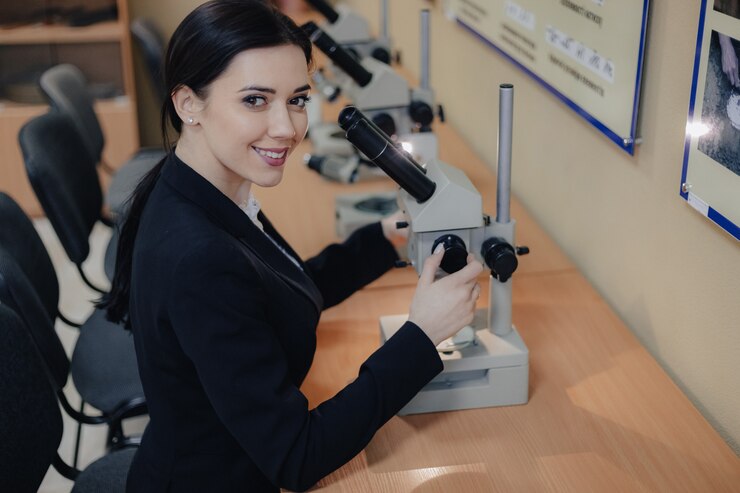The Efficiency of Aircraft Cleaning Service Providers
The efficiency of aircraft cleaning service providers is a crucial aspect of the aviation industry. With an increasing number of flights, heightened passenger expectations, and evolving health and safety regulations, airlines must rely heavily on efficient cleaning services to maintain cleanliness standards and ensure a positive passenger experience. This article delves into the importance of aircraft cleaning, the challenges faced by service providers, their innovative solutions, and the overarching impact of efficient cleaning on the airline industry as a whole.
The Importance of Aircraft Cleaning
Passenger Expectations
In today’s travel environment, passenger expectations regarding cleanliness have dramatically risen. Travelers are increasingly aware of hygiene, particularly in the wake of the COVID-19 pandemic. Passengers expect not only a clean cabin but also sterilized lavatories, spotless windows, and overall attention to detail in the aircraft’s condition. Studies indicate that passengers are more likely to return to airlines that meet their cleanliness expectations, making efficient cleaning services more important than ever.
Regulatory Compliance
Aircraft cleaning service providers must adhere to stringent regulatory guidelines set by aviation authorities and health organizations. Compliance with these regulations ensures that airlines maintain safety standards and protects passengers from health risks. A failure to meet these standards can result in fines, reputational damage, and, in extreme cases, the grounding of aircraft.
Brand Reputation
A clean aircraft is essential for the overall brand reputation of an airline. Airlines that consistently maintain high cleanliness standards foster trust and loyalty among their passengers. In contrast, news of unsanitary conditions on an airline can lead to negative reviews and a tarnished reputation. The efficiency of aircraft cleaning service providers directly impacts an airline’s brand image and market position.
Challenges Faced by Aircraft Cleaning Service Providers
Increased Flight Volume and Turnaround Times
The modern aviation landscape is characterized by increased flight volumes and accelerated turnaround times. With airlines striving to maximize aircraft utilization, cleaning service providers are tasked with performing thorough cleans in a limited timeframe. This dynamic presents a significant challenge, as service providers must balance speed with quality to meet operational demands.
Staffing and Training
Finding and retaining qualified personnel remains a challenge in the aircraft cleaning sector. The nature of the job often requires long hours, flexibility, and attention to detail, leading to high turnover rates. Additionally, rigorous training is necessary to ensure that staff are equipped with the knowledge of safety protocols, cleaning products, and procedures specific to various aircraft types.
Seasonal Demand Fluctuations
The aviation industry experiences seasonal demand fluctuations, with peak travel during holidays and off-peak periods during the year. Cleaning service providers must navigate these fluctuations while managing workforce capacity and ensuring they can meet increased service demands during peak times. This requires careful planning and resource allocation.
Innovative Solutions to Enhance Cleaning Efficiency
Technology Integration
The integration of technology has revolutionized the aircraft cleaning industry. Many cleaning service providers are leveraging software and mobile applications to streamline operations, manage schedules, and monitor cleaning protocols. Technology enables service providers to allocate resources more effectively, ensuring that cleaning tasks are completed efficiently within the designated time frames.
Cleaning Automation
Moreover, the introduction of automated cleaning technologies is gaining traction. Robotic cleaners equipped with UV-C disinfection systems can be deployed to sanitize aircraft interiors and exteriors quickly. Such innovations significantly reduce cleaning time, enhance efficiency, and ensure thorough disinfection, particularly in high-touch areas.
Customization of Services
Recognizing that different airlines have unique requirements, many cleaning service providers are focusing on customizing their offerings. Tailoring cleaning schedules, employing specialized cleaning techniques, and developing bespoke protocols can significantly enhance service efficiency. This customization allows service providers to align their cleaning practices with the specific needs and branding of each airline.
Enhanced Training Programs
To combat staffing challenges and improve service efficiency, many cleaning providers are investing in enhanced training programs. Ongoing training ensures that all staff are well-acquainted with safety procedures, cleaning techniques, and equipment usage. By fostering a culture of excellence and encouraging employee retention through professional development opportunities, service providers can improve their overall efficiency.
Real-Time Feedback Mechanisms
Implementing real-time feedback mechanisms is another avenue through which aircraft cleaning service providers can enhance efficiency. By utilizing technology that allows flight crews and passengers to report cleanliness concerns immediately, cleaning services can address issues quickly and maintain high standards. This proactive approach helps ensure that aircraft remain clean throughout their operations.
The Impact of Efficient Aircraft Cleaning
Improved Passenger Experience
The primary goal of efficient aircraft cleaning is to enhance the passenger experience. A clean and sanitary environment not only ensures the well-being of passengers but also fosters a sense of comfort and satisfaction during flights. Airlines that prioritize cleanliness through efficient cleaning services are likely to experience greater passenger loyalty and repeat business.
Cost-Effectiveness
While the initial investment in cleaning services may seem significant, the long-term benefits associated with efficiency are noteworthy. Airlines that implement effective cleaning processes can mitigate the costs associated with health risks, reputational damage, and customer turnover. By reducing downtime caused by labor-intensive cleaning methods, airlines can enhance their operational efficiency and ultimately boost profitability.
Compliance with Health Standards
As health and safety regulations continue to evolve, maintaining compliance is paramount. Efficient cleaning services not only align practices with regulatory requirements but also reassure passengers that their well-being is a top priority. This compliance is increasingly important as airlines seek to recover trust in the travel industry post-pandemic.
Competitive Advantage
In a highly competitive market, airlines that prioritize cleanliness and engage efficient cleaning service providers can gain a significant edge over their competitors. A reputation for maintaining exceptional hygiene can serve as a selling point, attracting more customers and encouraging positive growth in a challenging industry.
FAQs
1. What specific tasks do aircraft cleaning service providers perform?
Aircraft cleaning service providers perform a range of tasks, including cabin cleaning, upholstery and carpet cleaning, lavatory sanitization, window cleaning, and deep cleaning of aircraft interiors. They also handle exterior washing and detailed inspection of the aircraft prior to departure.
2. How do airlines select their cleaning service providers?
Airlines typically assess cleaning service providers based on their reliability, ability to meet regulatory standards, past performance, cost-effectiveness, and customization flexibility. They may also consider factors such as staff training, technology use, and availability of resources.
3. How often should aircraft undergo deep cleaning?
While the frequency of cleaning varies based on operational needs and passenger volume, deep cleaning is generally recommended on a weekly or bi-weekly basis. High-traffic aircraft may require daily attention to ensure passenger comfort and safety.
4. What role does technology play in modern aircraft cleaning?
Technology plays a significant role in optimizing cleaning efficiency. Scheduling and inventory management software can streamline operations, while automated cleaning robots can reduce labor time. Additionally, technologies for real-time feedback on cleanliness can improve quality control.
5. Are eco-friendly cleaning products used in aircraft cleaning?
Yes, many aircraft cleaning service providers prioritize the use of eco-friendly and non-toxic cleaning products to ensure passenger safety and minimize environmental impact. These products can effectively disinfect surfaces while being less harmful to the environment and human health.
Conclusion
Efficiency is a key focus for Aircraft Cleaning Service Providers. By streamlining cleaning processes and employing strategic planning, these providers ensure that aircraft are cleaned quickly and effectively, enabling fast turnarounds and minimizing delays. Discover their efficiency strategies at Aircraft Cleaning Service Providers.
LOCATION










